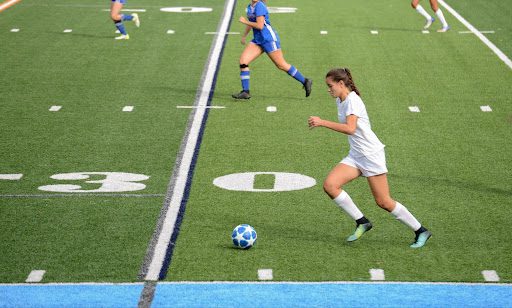Balancing the demands of academics and athletics requires a significant amount of attention, and proper nutrition is a cornerstone of success for student-athletes. Whether you’re sprinting on the track, dribbling on the soccer court, or diving into the pool, fueling your body with the right nutrients is essential for optimal performance, recovery, and maintaining healthy bones. At Paris Orthopedics, we’re here to explore key nutrition tips tailored to the unique needs of student-athletes, helping them navigate the challenges of a demanding schedule.
Prioritize Balanced Meals
Key Macronutrients
One of the key nutrition tips for student-athletes is to consume a well-balanced mix of carbohydrates, proteins, and fats to sustain energy levels and support overall health. Include whole grains, lean proteins, healthy fats, and a variety of fruits and vegetables in each meal.
Meal Timing
Aim for regular, balanced meals throughout the day. Don’t skip meals, especially breakfast, as it provides the necessary fuel to kickstart your metabolism and maintain energy levels.
Stay Hydrated
Importance of Hydration
Dehydration can significantly impact athletic performance, leading to fatigue, decreased endurance, and impaired cognitive function. Another one of our key nutrition tips is to drink water consistently throughout the day, and consider sports drinks during intense training sessions to replenish electrolytes.
Individualized Needs
The amount of water needed varies based on factors like body weight, climate, and activity level. Pay attention to your body’s signals and adjust your fluid intake accordingly.
Optimize Pre-Workout Nutrition
Carbohydrate Loading
Consume a carbohydrate-rich meal 2-3 hours before intense workouts or competitions to ensure glycogen stores are adequately replenished. This can include pasta, rice, or whole-grain options.
Protein Intake
Include a moderate amount of protein in your pre-workout meal to support muscle maintenance and repair. Examples include lean meats, poultry, fish, or plant-based protein sources.
Recovery Nutrition
Post-Workout Window
The post-exercise period is crucial for recovery. Consume a balanced meal or snack within 30 minutes to an hour after exercise to replenish glycogen stores and kick-start muscle repair.
Protein-Rich Snacks
Opt for snacks that combine carbohydrates and proteins, such as yogurt with fruit or a peanut butter banana sandwich, to support recovery.
Incorporate Healthy Snacks
Nutrient-Dense Options
Keep nutrient-dense snacks readily available for quick energy boosts between classes and practices. Nuts, seeds, yogurt, fruit, and granola bars are convenient and nutritious choices.
Avoid Empty Calories
Minimize the intake of sugary snacks and beverages, known as empty calories, as they provide quick but short-lived energy and may lead to energy crashes.
Individualized Nutrition Plans
Consult With Professionals
Consider working with a registered dietitian or nutritionist to create an individualized nutrition plan that aligns with your specific needs, goals, and dietary preferences.
Trial And Error
Experiment with different foods and meal timings during training sessions to identify what works best for your body and performance.
Monitor Micronutrient Intake
Vitamins and Minerals
Ensuring a diverse and colorful diet to meet your body’s micronutrient needs is one of the key nutrition tips. Fruits, vegetables, and whole grains are rich sources of essential vitamins and minerals.
Supplementation, If Necessary
If certain micronutrient needs are challenging to meet through food alone, consider supplements after consulting with a healthcare professional.
Mindful Eating Habits
Eat Mindfully
Avoid distractions like phones or screens while eating. Nutrition tips like these can help you focus on your meal to enhance digestion, promote satiety, and prevent overeating.
Listen To Hunger Signals
Pay attention to hunger and fullness cues. Eating when hungry and stopping when satisfied helps maintain a healthy relationship with food.
Adequate Sleep
Sleep Quality
Nutrition is interconnected with sleep. Ensure you get adequate and quality sleep to support recovery, hormone regulation, and overall well-being. Sleepfoundation.org suggests that teens (ages 13-18 years) should be getting between 8 and 10 hours of sleep every night. School-age children (ages 6-12 years) need at least 9-12 hours.
For student-athletes, achieving success both academically and athletically requires a commitment to optimal nutrition. At Paris Orthopedics and Sports Medicine, we understand how important nutrition and bone health is for all student-athletes. We are here to answer any questions you may have or to provide you with more nutrition tips for your student-athlete. Check out our website or contact us at (903) 737-0000.




